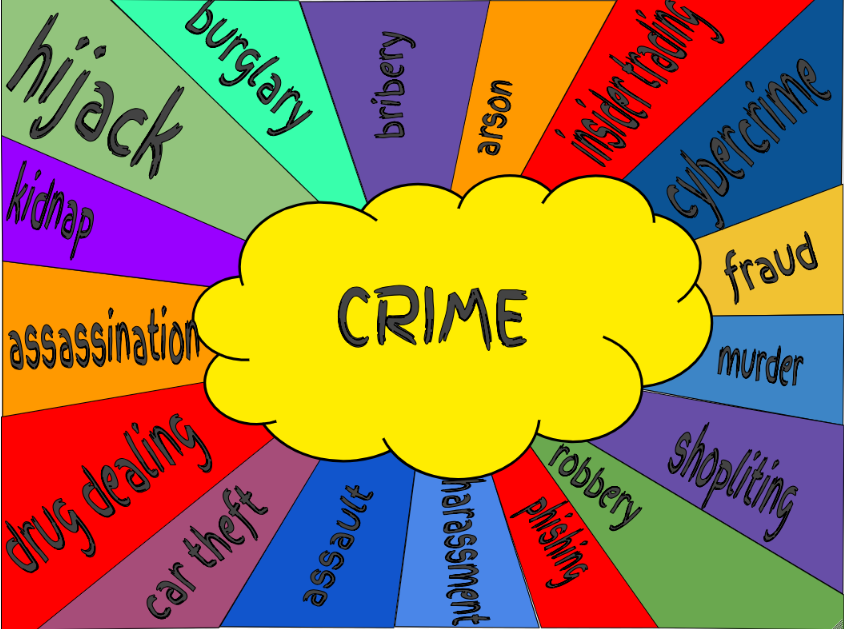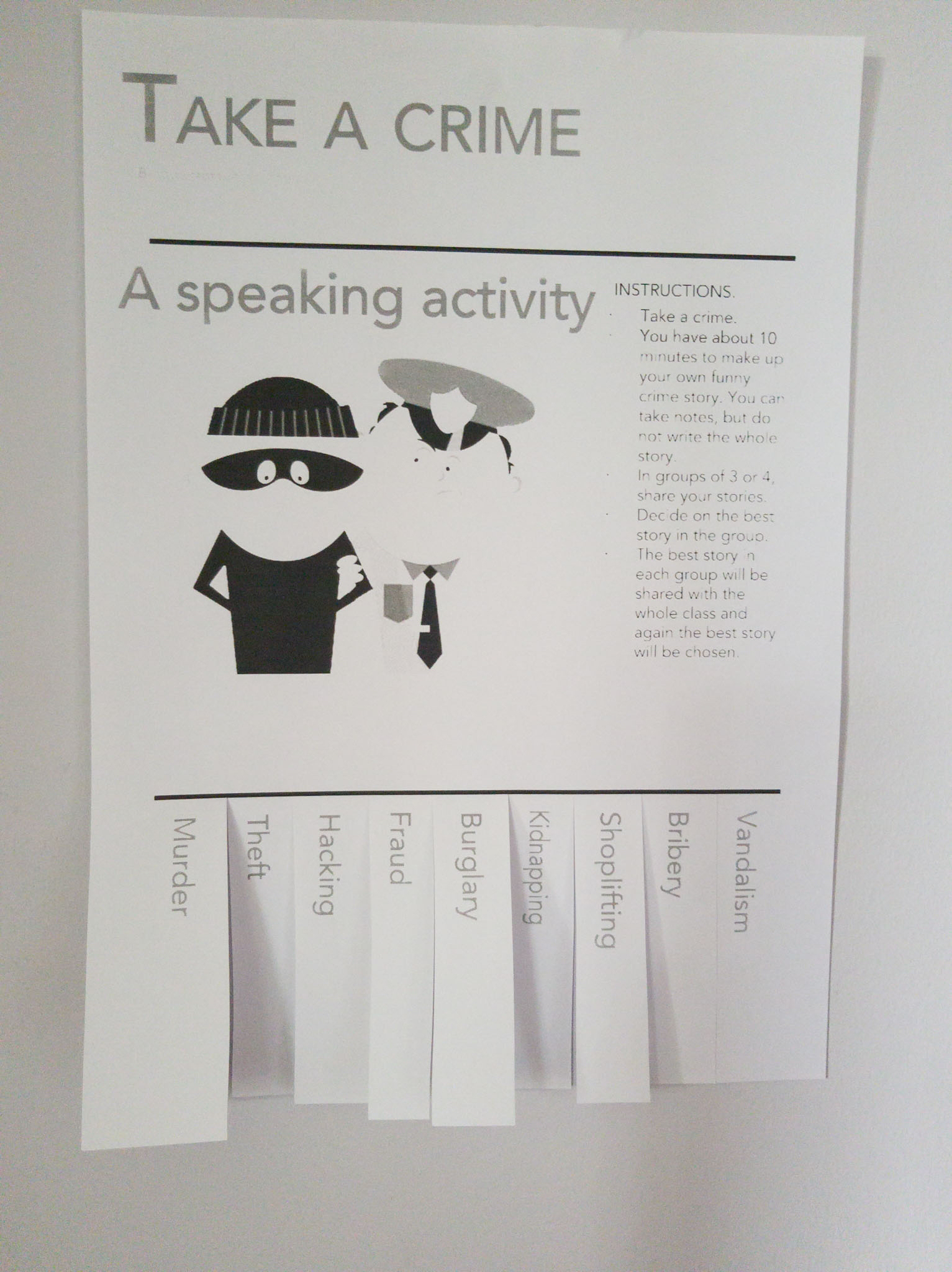Yay! It’s March! One of my fav seasons! I’m basically ticking off the days in my calendar until March 31 when we turn the clocks ahead and get more hours of daylight. In case you haven’t figured yet, I’m a sucker for bright sunny days.
This lesson plan about Crime and Punishment has been on my to-make list for a long time. And since I’m also ticking off the days before finals, I have decided to finally write it. “Don’t leave for tomorrow what you can do today” or so they say.

This lesson plan is intended to fill a four-hour lesson or maybe a bit more. My classes are 110 minutes long so my intention is to dedicate two classes to talking about this topic. You can skip some of the tasks – don’t you dare!- if you don’t want to spend four hours talking about crime and punishment.
Day 1
Day One is a bit more boring than Day 2. Be warned!
Step 1: Lead-in.
1. Revising vocabulary. At this level, students know some common vocabulary related to crime and it’s always a good idea to tap into students’ prior knowledge. You want them to feel they are learning, but you probably don’t want them to feel overwhelmed by the amount of vocabulary they have to study.
Write Crime on the board and ask students in pairs to write down as many different crimes as they can think of.
Ask for feedback and write them on the board. It might be a good idea to introduce at this point the names for the criminals and the action verbs for each crime.
Example: they write kidnapping, and they also get kidnapper and to kidnap

2. Speaking: Point to some of the crimes on the board and ask simple questions such as
Do you know anyone who has been burgled/ mugged/kidnapped/ stopped by the police while drunk-driving? What happened?
Step 2: Introducing New Vocabulary.
1. A Game with FlipCards. As I wrote in another post, Quizlet and I have made up, it’s not that we had fallen out, it’s just that I found other flip card apps more visually appealing. I still think they could update their app but the truth is that now I find myself using Quizlet more and more often. I am planning to use Quizlet in two ways. The one below- Flashcards mode-on Day 1 and Quizlet Live on Day 2 ( I warned you, Day 2 is more fun!)
Procedure: Divide the class into Team A and Team B. They should name a spokesperson for each team. Flip a virtual coin to decide who starts the game. Let’s say Team A starts the game. Display the first definition and ask Team A to guess the crime. Allow a maximum of 10 seconds and ask the spokesperson to tell you the crime. They can continue playing until they make a mistake or cannot come up with the crime matching the definition. At this point, the turn goes to Team B who can try to guess the crime. If they can’t, they will still continue trying to guess crimes until again they make a mistake or cannot provide the crime for the definition on display. Every correct guess scores 1 point. It goes without saying the winner is the team who has scored the most points.
The idea is to facilitate learning, so after the game do the exercise again with the whole class, this time trying to focus only on the pictures and quickly saying the crime. A third time at the end of the class? Why not!
If Quizlet does not work, here you are another version of the Flashcards
Introduce the term “white-collar crimes” also called “corporate crime”. Explain that white-collar crimes are those financially motivated, nonviolent crimes committed by business and government professionals. Ask students to name some white-collar crimes and ask:
Do you think white-collar criminals should do time in jail?
Want to go the extra mile? For a more extensive list, click here
2. Vocabulary related to Crime and Punishment.
We have the crimes and the criminals. Now, what else? To talk about crimes and punishment we need vocabulary. Find the PDF here
3. Confusing words: steal, rob and burgle
This post about the difference between these three verbs published some time ago, comes in handy. Check it out
Step 3: Speaking.
Time: 2 minutes per question
Ask students to work in groups of three. Name them Student A, B and C. Give each of them a scrap of paper and ask them to write 4 words they remember related to crimes. Display the first question from the presentation below and ask student As in the group to answer the question trying to use the words in their scraps of paper. Display the second question and ask student Bs to do the same. Repeat procedure for student Cs.
Ask students to swap scraps of paper within the members of their group and then ask all the student As in the groups to move to another group. Repeat the procedure above.
Note: Ask students to keep their scraps of paper as they will be used on Day 2.
Step 4: Listening and Speaking. Note-taking
Play the following videos. The task for each of them is the same.
- Ask students to take notes and summarize the information
- Ask: Does the punishment fit the crime?
Five teens charged for murder for throwing rocks
Animal abuse
Drunk driving
I know, I know... I said two hours... maybe a bit more :)
Day 2
Day 2 is all about reinforcing vocabulary, playing and speaking. Check it out!


